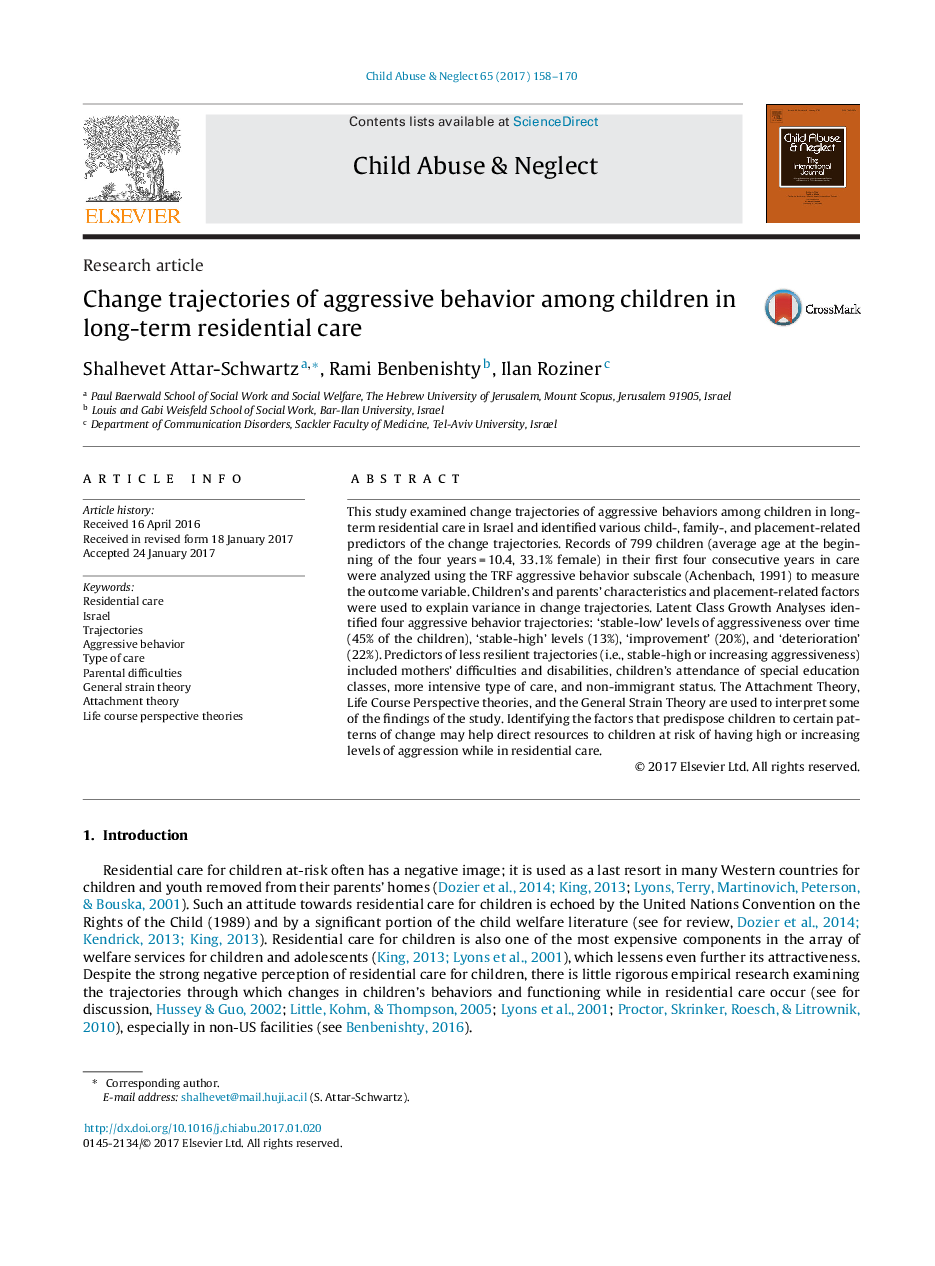ترجمه فارسی عنوان مقاله
مسیرهای رفتار تهاجمی کودکان را در مراقبت های درازمدت مسکونی تغییر دهید
عنوان انگلیسی
Change trajectories of aggressive behavior among children in long-term residential care
| کد مقاله | سال انتشار | تعداد صفحات مقاله انگلیسی |
|---|---|---|
| 157153 | 2017 | 13 صفحه PDF |
منبع

Publisher : Elsevier - Science Direct (الزویر - ساینس دایرکت)
Journal : Child Abuse & Neglect, Volume 65, March 2017, Pages 158-170
ترجمه کلمات کلیدی
مراقبت مسکونی، اسرائیل، مسیرها، رفتار پرخاشگرانه، نوع مراقبت، مشکلات والدین، نظریه عمومی کرنش تئوری ضمیمه نظریه چشم انداز دوره زندگی،
کلمات کلیدی انگلیسی
Residential care; Israel; Trajectories; Aggressive behavior; Type of care; Parental difficulties; General strain theory; Attachment theory; Life course perspective theories;

